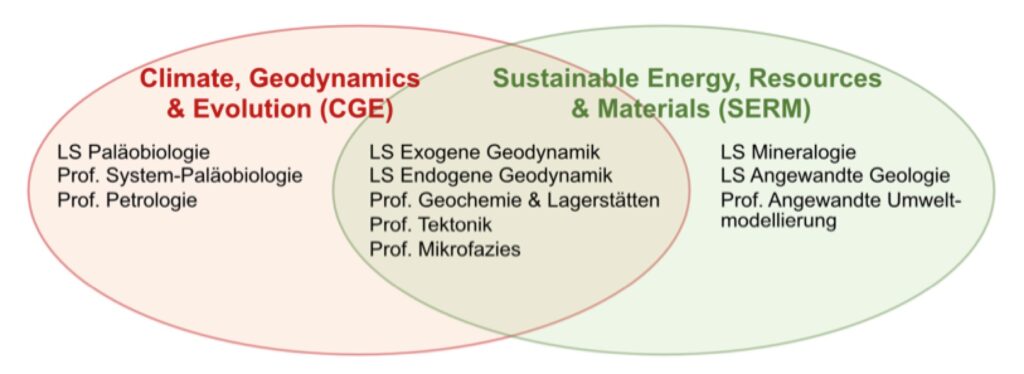Research
Our research-focused team comprises 11 working groups, which cultivate a future-oriented combination of basic and applied research and participate in a wide variety of interdisciplinary research at FAU.
At the GeoZentrum Nordbayern (GZN), research is concentrated in two main areas:
The focus on Climate, Geodynamics and Evolution (CGE) consists of significant contributions to understanding the dynamics of the planet and environmental changes throughout Earth’s history, including the effects of human activity.
The focus on Sustainable Energy, Resources and Materials (SERM) at the GZN offers important solutions to mitigate climate change and anthropogenically caused environmental changes. The focus is on researching the sustainable use of the earth’s raw materials such as water, building materials or metals for a carbon-neutral society.
Methodologically, the GZN uses the most modern geochemical and experimental laboratory equipment as well as modeling and data processing (big data and AI), which are also used in future-oriented teaching concepts.
Climate, Geodynamics and Evolution (CGE)
- Research into the coupling of geodynamic processes with the development of the climate and the biosphere using big data and modeling approaches
- Determination of the impact of climatic and geodynamic processes on ecosystems in the past and transfer to forecasts for the future
- Development of methods for combining fossil, genetic and ecological data to test hypotheses about the origin and evolution of life
- Research into geodynamic material transport during the development of the lithosphere
Sustainable Energy, Resources and Materials (SERM)
- Researching strategies for the sustainable use of georesources and recycled materials as well as developing geo-inspired building materials to reduce the effects of climate change
- Research into the geological subsurface for the potential use of geothermal resources for heat and electricity production or storage of groundwater CO2 and energy sources such as hydrogen
- Research into the geochemical interactions between rocks and fluids with regard to dissolution and precipitation processes in the geological subsurface
- Research into geological risks such as drought or flooding and strategies to mitigate them

